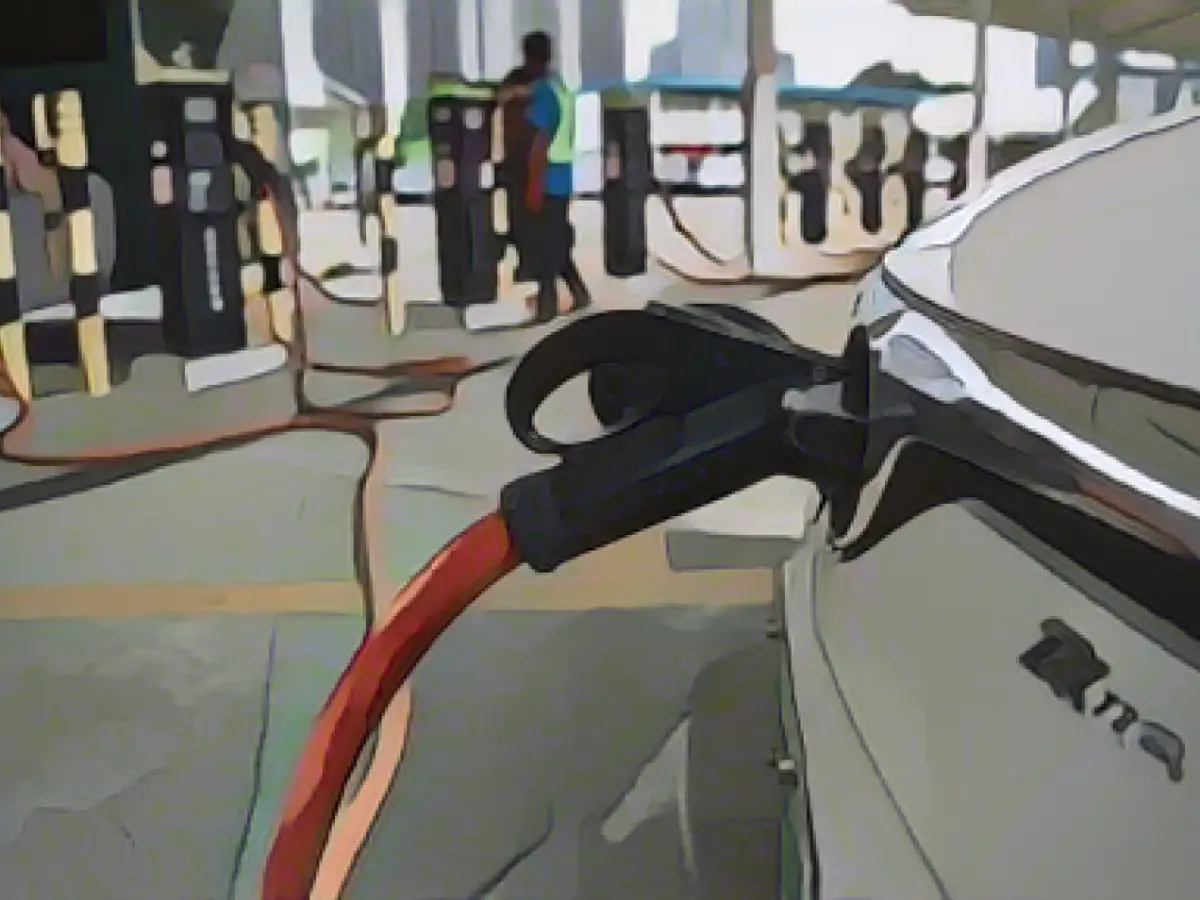Habeck's ministry causes displeasure with abrupt end to e-car bonus
The ministry's move concerns the so-called environmental bonus, through which buyers of e-cars could receive several thousand euros in subsidies from the state upon application. In their agreement on the 2024 budget last week, the coalition leaders had decided to phase out the subsidy. However, it came as a surprise to many that the ban on applications was to take effect on Sunday.
On Sunday, the deputy leaders of the SPD parliamentary group Detlef Müller, Matthias Miersch and Verena Hubertz called on Federal Minister for Economic Affairs Robert Habeck (Greens) to "organize a more reliable transition". Most people would have to "calculate very carefully how they can afford it when buying a new car and have certainly planned for the premium."
The Ministry of Economic Affairs immediately rejected this: there is no money for a transitional solution. A ministry spokesperson conceded that the expiry of the subsidy created an "unfortunate situation" for all those who had counted on a premium. However, the short-term expiry of the funding program had become necessary "because there is no longer enough money available to consider applications received after Sunday". This situation is "a direct consequence" of the budget ruling by the Federal Constitutional Court.
However, funding that has already been approved is not affected by the end of the funding period and will be paid out. Applications received up to and including December 17 will be processed in the order in which they are received and - provided the funding requirements are met - approved, the ministry explained.
The decision to end funding at short notice was "jointly determined" with the Federal Chancellery, a ministry spokesperson emphasized on Sunday. "We therefore reject the one-sided criticism of this." According to ministry sources, the accusation of "one-sided criticism" also referred to the critical statements from the SPD parliamentary group in the Bundestag.
According to Habeck's ministry, "all funds available in the 2023 financial year have already been exhausted". The funds of 209 million euros still earmarked for 2024 "will only be sufficient if the funding ends with immediate effect".
According to AFP information, around 1,400 applications were recently received every day, with an average funding amount of 4,000 euros. Every additional day of applications costs the state around 5.6 million euros. If applications had been stopped at the end of the year, as had initially been expected, additional funds of around 80 million euros would have been required.
Habeck's ministry received support from coalition partner FDP. FDP parliamentary group leader Christian Dürr told the Funke newspapers that it was "right that this costly funding should end earlier than planned". This would "contribute to the urgently needed consolidation of the federal budget".
Industry expert Ferdinand Dudenhöffer, on the other hand, warned of dramatic consequences for the German automotive industry. "The competitiveness of manufacturers will now be severely damaged," Dudenhöffer told the Rheinische Post newspaper. Without high investments in electric cars, the German industry would lose decisive advantages: "The Chinese are massively expanding their car industry because they have customers. Our manufacturers no longer have any."
The CDU accused the traffic light government of leaving tens of thousands of car buyers in the lurch. Vice faction leader Ulrich Lange called for an interim solution in the Funke newspapers. He said that by stopping the state purchase premium for electric cars at short notice, the traffic light government was "once again causing its typical subsidy chaos" and destroying trust.
According to the Ministry of Economic Affairs, a total of around ten billion euros has been paid out for around 2.1 million electric vehicles via the environmental bonus since 2016. The German government wanted to use the funding to support its goal of bringing a total of 15 million fully electric cars onto the roads by 2030.
Read also:
- This will change in December
- Attacks on ships in the Red Sea: shipping companies avoid important trade route
- German activists speak out in Dubai on suffering in Israel and the Gaza Strip
- Despite UN vote: fighting between Israel and Hamas in the Gaza Strip continues
- Matthias Miersch, a deputy leader of the SPD parliamentary group, expressed displeasure with the abrupt end to the e-car bonus by Robert Habeck's ministry.
- On Sunday, Robert Habeck's ministry announced the end of the environmental bonus for e-cars, causing displeasure and indignation among many buyers.
- According to Matthias Miersch, many people had planned for the premium when buying a new car, and the sudden end would create financial difficulties.
- The Federal Ministry of Economics, led by Robert Habeck, stated that there is no money available for a transitional solution, leading to disappointment among buyers.
- Robert Habeck's ministry received criticism from the SPD parliamentary group for the abrupt end to the e-car bonus, which they described as "subsidy chaos."
- Cooperating with the Federal Chancellery, Robert Habeck's ministry decided to end funding for e-cars prematurely, saving around 80 million euros.
- Detlef Müller, another deputy leader of the SPD parliamentary group, called on Robert Habeck to "organize a more reliable transition" for buyers of e-cars.
- The decision to end funding at short notice came as a surprise to buyers of e-cars, leading to concerns about the affordability of purchasing new cars with the premium no longer available.
- Robert Habeck's coalition partner, the FDP, supported the ministry's decision to end funding earlier than planned to contribute to the urgently needed consolidation of the federal budget.
- Industry expert Ferdinand Dudenhöffer warned of severe consequences for the German automotive industry, predicting that the end of funding would damage competitiveness and lead to loss of advantages to Chinese manufacturers.
Source: www.stern.de







